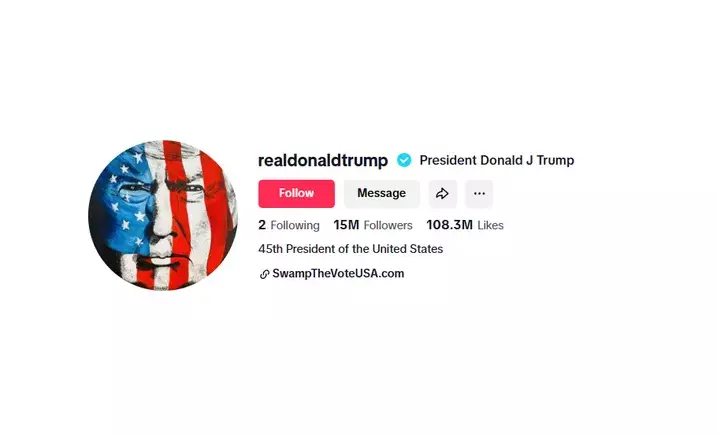As the landscape of social media evolves, few platforms have sparked as much controversy as TikTok. The app’s tumultuous status in the United States is emblematic of broader concerns regarding national security, data privacy, and the influence of foreign entities on American users. Following a series of legislative actions and executive decisions, TikTok currently finds itself in a precarious position, oscillating between operational status and legal hurdles.
Recently, a significant decision came from the Supreme Court, which upheld a legislative bill known as the “Protecting Americans from Foreign Adversary Controlled Applications Act.” This legislation established a formal framework through which the federal government could target apps perceived as national security threats, including TikTok. However, the implementation of this law has not been straightforward. Despite its official sanction, the outgoing Biden Administration chose not to enforce the ban, thereby creating an unconventional gap in the application of the law.
Legally speaking, the issue is complicated. While TikTok continues to function for U.S. users, the basis for its operation appears to be in violation of standing federal law. Understanding this paradox highlights the challenges of navigating a digital world intertwined with legal and political complexities. President Trump’s decision to grant TikTok a temporary reprieve—an extension of 75 days to renegotiate its operational framework—has raised questions about the legality of such a maneuver, especially since it attempts to retroactively alter a law that has already been enacted.
The hesitation of tech giants like Apple and Google to list TikTok in their app stores illustrates the nuanced risks these corporations face. With the potential for significant financial fines—up to $5,000 per user—there is an understandable reluctance to engage with a platform that is teetering on the edge of legality. Trump’s assurances that no hefty fines would be levied against providers are unlikely to quell concerns among these major players. Their hesitance to support TikTok underscores how corporate priorities may clash with political promises.
In contrast, Oracle, which provides back-end support for TikTok, has chosen to align itself with Trump’s assurances. This development raises further questions about the selective nature of risk management in the tech industry. Will Oracle be shielded from legal consequences should the environment around TikTok’s operations shift once again? Historical precedents suggest that political alliances can greatly influence corporate outcomes, but this also makes the situation fragile and potentially prone to sudden changes.
A critical element of the debate surrounding TikTok lies in the national security concerns that precipitated calls for its ban. A substantial bipartisan consensus—evidenced by a staggering vote of 431 to 83 in favor of the ban—indicates that lawmakers had significant reasons to distrust foreign-controlled applications. However, the specifics of the intelligence briefings that led to this decisive vote remain classified. This secrecy adds layers of complexity to the discussion, leaving both the public and political figures to speculate about the unspoken threats posed by the app.
President Trump’s willingness to pursue negotiations aimed at securing a financial stake in TikTok reveals a potential conflict of interest. The prospect of gaining 50% ownership could steer national conversation away from security to economic benefit. However, such negotiations require transparency and a clear understanding of the issues at hand. Without proper briefings, Trump’s approach could shift once he is fully educated on the risks associated with the app.
As the political and legislative landscape continues to evolve, TikTok remains in limbo. While users can currently access the app, the lack of a definitive and lasting resolution leaves its future uncertain. The willingness of the new administration under President Trump to either enforce or renegotiate the existing legal framework will greatly shape TikTok’s prospects moving forward.
In light of these developments, it becomes crucial for all stakeholders—users, lawmakers, and corporations—to reconsider their relationships with apps like TikTok. The ongoing legal uncertainties and political machinations not only jeopardize the app’s operational stability but also pose broader questions about digital governance in an increasingly interconnected world. As it stands, TikTok’s standing in the U.S. encapsulates the challenges faced by technology companies operating within a fraught geopolitical context, making it an evolving saga worth closely monitoring.


Leave a Reply